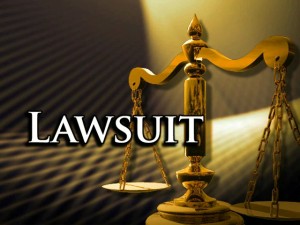Posted by Teresa on October 1, 2012 under Landlord Tenant Lawsuits, Landlord Tips | 
 Every experienced landlord has a horror story or two about terrible tenants. But a website based in Florida has visual proof: pictures of tenants and the destruction they leave behind.
Every experienced landlord has a horror story or two about terrible tenants. But a website based in Florida has visual proof: pictures of tenants and the destruction they leave behind.
The photos are posted on TerribleRenters.com, a site that aims to spare other landlords the trouble of renting to these folks. Each resident’s full name, along with a description of the problems he or she caused is posted, with photos of the property. Some postings include photos of the tenant.
Check out the site, and you’re going to see what countless landlords are forced to deal with when problem tenants move out:
- Crayon marks on walls.
- Burns on hardwood floors.
- Bags of garbage.
- Un-bagged garbage—piles of it.
- Tenant possessions simply left behind.
- Holes knocked through walls, leaving one room open to the next.
- Filthy carpets and linoleum.
- Rotten food left in refrigerators.
- Ovens that have never been cleaned.
- Drug paraphernalia.
- Animal feces.
- Stolen appliances and fixtures.
- Spray painted messages on walls and ceilings.
The list goes on and on. It is truly astounding to see how some people live. It’s even more shocking that they think it’s acceptable to leave such messes behind.
The typical “terrible tenant” has been evicted for non-payment of rent, not for damaging the property—so landlords face a double-whammy: loss of rent, plus the expenses of cleaning up garbage and property, expensive repairs and replacing stolen items.
TerribleRenters.com is based in Florida and most of the submissions are Florida residents, but some are from other states. Landlords post anonymously. Some are looking for their tenants to serve them notice or to file charges. Others just want to warn landlords not to lease to these problem tenants.
The best way to avoid problem tenants is to conduct thorough tenant screening. And it doesn’t hurt to Google the names on the application. Who knows? Maybe your applicants are listed on a terrible tenants site somewhere!
Posted by Teresa on March 7, 2012 under Landlord Tenant Lawsuits, Rents and Deposits | 
 Countless landlords and tenants enjoy the convenience of online rent payment. Whether a tenant sets it up through a bank’s online bill pay system, or the landlord offers a web-based rent payment service, it’s becoming a more common way to complete this common transaction.
Countless landlords and tenants enjoy the convenience of online rent payment. Whether a tenant sets it up through a bank’s online bill pay system, or the landlord offers a web-based rent payment service, it’s becoming a more common way to complete this common transaction.
But what about tenants who prefer not to—or cannot—use online rent payment? Can they be forced to do so? One property management group in Los Angeles will soon find out. Residents of Woodlake Manor Apartments are suing the landlord, Jones & Jones Management Group, Inc. over a new requirement that every tenant make rent payments online.
Some, like 86 year-old Margaret Beavers, have no interest in paying rent online. She has lived in the building since 1963 and in her own words, is “computer illiterate.” She and other tenants fear that refusing to cooperate with the new requirement leaves then vulnerable to eviction. They claim that the company’s new rule is a cover-up for an attempt to evict the low-income, elderly residents who fall under rent-stabilization laws. An attorney for the property owner said the claims were “completely unfounded.”
The property owner stated that their objective was to “go green” and make rent payment easier for tenants. Opponents say they are eager to shed low-income residents in favor of higher-income tenants. A California state senator who filed a bill banning the requirement of online rent payment said that not everyone has a computer, and even those who do may not want to pay bills online for security reasons. The legislation is pending.
Jones & Jones owns 38 buildings throughout Los Angeles and Ventura counties. The lawsuit was filed on behalf of four residents, all over age 62. An attorney who represents landlords pointed out that the state of California has no right to ban online-only rent payment requirements by landlords—especially when California requires online tax payments.
Do you offer online rent payment to your tenants? If so, is it required, or are you flexible about whether tenants must pay online?
Posted by Teresa on July 26, 2011 under Landlord Tenant Lawsuits | 
 Disputes between landlords and tenants are part of the job of being a landlord. And sometimes it’s necessary to sort things out in a court of law. But court cases are time consuming, expensive, and mostly unpleasant. For many landlords, taking a tenant to court is the worst aspect of owning rental property.
Disputes between landlords and tenants are part of the job of being a landlord. And sometimes it’s necessary to sort things out in a court of law. But court cases are time consuming, expensive, and mostly unpleasant. For many landlords, taking a tenant to court is the worst aspect of owning rental property.
The next time you and a tenant don’t see eye-to-eye on an issue, why not explore alternatives, such as mediation? Professional mediation is a non-adversarial process for resolving disputes that can save you time and money, as well as improve your relationship with your tenant.
What Is Mediation?
• Mediation allows both sides to share their side of the story in the presence of a trained, neutral mediator.
• Is private and confidential.
• Can result in binding agreements, but no one can be forced to accept an unsatisfactory solution.
• Is typically less expensive than court-based solutions.
• Results in a settlement about 85% of the time.
• Is offered by some municipalities or universities for free, so check to see if that’s an option where you live.
Mediators help adversaries talk through a problem without anger, for a more efficient communication process. Professional mediators also help the parties work through possible solutions and come to an agreement.
Mediation cannot be used when legal advice is needed or a case involves criminal charges.
Mediation Can Assist in Disputes Between Landlords and Tenants
• Damaged property
• Rent payments or increases
• Security deposits
• Repairs
• Noise complaints
• Property use issues
• Common area maintenance disputes
• Pet issues
A web search can help landlords locate nearby mediation services. And remember, it can be free of charge, depending on where you are located.
Posted by Teresa on January 11, 2011 under Landlord Tenant Lawsuits, Tenant Screening & Background Checks | 
 You’re probably familiar with the news story about a house in Escondido, CA, where the resident is accused of making bombs and plotting bank robberies. Because of danger to neighbors, the decision was made to burn the house completely to the ground.
You’re probably familiar with the news story about a house in Escondido, CA, where the resident is accused of making bombs and plotting bank robberies. Because of danger to neighbors, the decision was made to burn the house completely to the ground.
Now the question is, “Who’s responsible for the compensating the property owners?” While the county made the decision to destroy the house in the interest of public safety, where did that leave the owners of the home, who rented it to the accused bomb maker? Should the owners’ insurance company reimburse them for the loss? Or is this a necessary expense of the taxpayers of San Diego County, who are already burdened with the expenses of removing the hazard and the resulting cleanup?
Obviously, the accused man, George Jakubec, bears the full responsibility for his actions. But it’s doubtful he’ll have the ability to repay the homeowner. Some say the landlords should be responsible for their loss and to the county for all expenses because of negligence—that they should have known of this tenant’s activities. Questions have arisen about whether proper tenant pre-screening and periodic inspections were conducted.
However, there is no proof that the landlords didn’t screen the tenant prior to signing a lease. Even if they had, the suspect’s crime record has not been released, so we don’t know whether or not he had a criminal record that would have prevented the landlord from renting the property to him.
Most landlords know that their tenants have the right to peaceful habitation, without harassment or unnecessary inspections. However, landlords who care about their properties schedule periodic maintenance to not only protect the property value, but to ensure that illegal or dangerous activity is not taking place.
In the Escondido case, the landlord’s attorney has filed a claim with San Diego County, asserting that no legal justification existed to burn the house. Further, the claim states the eminent domain procedures that would have compensated the property owners were not followed. We’ll keep watching for updates.
In the meantime, a word to the wise: keep conducting thorough tenant screening and background checks, and schedule periodic inspections of your rental properties. It’s so much better to be safe than sorry!
Posted by Teresa on December 21, 2010 under Landlord Tenant Lawsuits | 
 A recent case in Florida shows the U.S. Department of Housing and Urban Development (HUD) has little tolerance for racial discrimination against tenants. In this case, HUD charged the owners of a single-family home in Gibsonton, FL, with violating the Fair Housing Act (FHA). The charges include engaging in discriminatory housing practices for reneging on an agreement to rent the house to a woman and her children because they are African American. It also includes charges that the owners used racial slurs when referring to and addressing the family.
A recent case in Florida shows the U.S. Department of Housing and Urban Development (HUD) has little tolerance for racial discrimination against tenants. In this case, HUD charged the owners of a single-family home in Gibsonton, FL, with violating the Fair Housing Act (FHA). The charges include engaging in discriminatory housing practices for reneging on an agreement to rent the house to a woman and her children because they are African American. It also includes charges that the owners used racial slurs when referring to and addressing the family.
Most landlords are very familiar with the FHA, which bars discrimination against persons based on race, color, national origin, religion, sex, familial status (including children under the age of 18 living with parents or legal custodians), pregnant women (and people securing custody of children under the age of 18), and handicap (disability).
In the Florida case, the suit alleges that the owners initially agreed to rent the home to an African American woman and her three children. Two days after they moved in, the owner refused their rent payment. He then ordered the children out of the house while their mother was at work, and changed the locks. A relative found the kids about a quarter mile from the house, under a highway underpass.
Subsequent interactions between landlord and tenant included several uses of a racial slur, according to the tenant. The owners by then had rented the house to another tenant.
The case will be heard by an administrative law judge, who may award damages if he or she finds discrimination has occurred. The judge may impose punitive damages to deter further discrimination, as well.
The lesson here is nothing new: discriminating against a current or potential tenant on the basis of race is illegal. Landlords must be blind to race, disability, country of origin, religion, family status and color. And those who aren’t will face the consequences.
Posted by Teresa on October 8, 2010 under Landlord Tenant Lawsuits, Landlord Tips | 
 Surprise! You Must Return the Tenant’s Security Deposit: When a tenant moves out and leaves significant damage to the rental unit, why wouldn’t you be able to just keep the entire security deposit to clean up and make repairs? Isn’t that the purpose of a security deposit? Yes, as long as the landlord or property management company follows the letter of the law. When they do not, the tenant can keep every penny of the deposit and walk away, leaving the property owner or manager to deal with stained carpet, water damage, wall gouges and broken cabinet doors.
Surprise! You Must Return the Tenant’s Security Deposit: When a tenant moves out and leaves significant damage to the rental unit, why wouldn’t you be able to just keep the entire security deposit to clean up and make repairs? Isn’t that the purpose of a security deposit? Yes, as long as the landlord or property management company follows the letter of the law. When they do not, the tenant can keep every penny of the deposit and walk away, leaving the property owner or manager to deal with stained carpet, water damage, wall gouges and broken cabinet doors.
While tenant screening helps reduce liabilities like renting to tenants who trash properties, anything can happen. Remember, if the law in your state requires landlords and property management companies to return security deposits or provide an itemized list of damages within 15 or 30 days (most do) and you fail to provide it, the tenant may seek recourse, including return of the security deposit, no matter how much damage he or she has left behind.
Surprise! Your Tenant is the Proud Owner of a Pit Bull Puppy: Whether your rental property is a pet-friendly one or not, most insurance companies will not cover a property where certain dog breeds live—and most include pit bulls on the list of prohibited breeds. Of course, your lease should state clearly the policy on pets. When a tenant sneaks in two cats above the one you approved, blatantly ignores your “no snakes” rule, or thinks your “no pit bulls” rule applies to another tenant, then you are within your rights and responsibility to give notice to remove the animal(s) or face eviction.
Remember, tenants don’t always read their leases. When signing a lease with a new tenant, read over each and every paragraph and make sure they understand the consequences of breaking any of the provisions of the lease. If you review a “no pets” policy with a new tenant, inform them that they will be evicted if they bring a pet into the rental unit, then moving forward with eviction is the only recourse. Other tenants will see you enforce the rules.
Surprise! Tenants are Your Customers: Keep your tenants happy by respecting their right to live quietly and enjoy a home where everything functions properly. Keep your tenants safe by installing adequate lighting and locks. Keep your tenants satisfied by giving plenty of notice when you need access to their rental unit. Help them carry the couch in on moving day. Be proactive when making routine repairs and keep everything well-maintained. You’ll be surprised how many more referrals you’ll receive when your tenants are happy.
Remember, you’re in a business where you have a product (your rental property) and a service (your management of said property) to sell, and a customer who needs them. Your tenants are your customers, and good customer service will go a long way to making the landlord/tenant relationship a more successful one.
Posted by Teresa on September 10, 2010 under Landlord Tenant Lawsuits, Landlord Tips | 
 What is an landlord liable for? If a tenant falls on the sidewalk, is the landlord liable for damages? What about broken pipes? Read on for some general information about keeping yourself safe from liability as a landlord:
What is an landlord liable for? If a tenant falls on the sidewalk, is the landlord liable for damages? What about broken pipes? Read on for some general information about keeping yourself safe from liability as a landlord:
Safety
Landlords must provide a safe living space for their tenants. This means that if a faulty railing causes a child to fall from a landing, the landlord could be held liable. If there are large cracks in a sidewalk leading to an apartment building, the landlord can be held liable when a tenant’s guest trips and falls and injures him or herself. Or, if a rental house built prior to 1978 is being renovated, proper steps must be taken to protect occupants from lead paint poisoning. Landlords must also ensure smoke and CO2 alarms are installed and functioning. And plumbing systems must function properly—tenants could possibly sue for property damage from leaking pipes.
Security
Landlords who hire property managers must be as careful about them as they are with potential tenants. Landlords can be responsible for any criminal actions by their employees. Exposing your tenants to harm and yourself to possible charges of discrimination, unfair treatment or harassment is a real threat to your rental property business.
Criminal Activity
In most states, landlords must reasonably protect tenants from criminal acts. Proper lighting and adequate door and window locks are the landlord’s responsibility. If a flimsy lock allows an assailant into a tenant’s rental home or apartment, it is possible that the landlord would be held liable. Subjecting residents to another tenant’s criminal activity could become a landlord’s liability, too. That’s one reason why tenant screening is so important. If a tenant is harmed by a parolee, for example, the landlord could be held liable for allowing a known criminal to move in.
For expert advice on how to protect yourself as a landlord, check with an attorney specializing in landlord/tenant issues. Protect your business, your tenants, and yourself from liability by screening tenants and making your rental properties safe for residents!
Posted by Teresa on July 20, 2010 under Landlord Paperwork and Forms, Landlord Tenant Lawsuits | 
 When Does a Landlord Need a Lawyer?
When Does a Landlord Need a Lawyer?
In short, landlords need expert assistance from landlord/tenant lawyers when a legal issue becomes serious or has the potential to be expensive. Here are several such scenarios:
When you’re starting out. It could be worth the extra expense to have your lease agreements, pet policies, security deposits and other legal documents prepared by a a law professional. You don’t want to discover during a tenant dispute that the lease you downloaded from the Internet is illegal in your state. And you don’t want to be sued for having discriminatory language on your lease. If you prepare your own lease documents or use publicly-available documents, you should at least have a lawyer review them before you use them.
When you experience your first eviction. Having an experienced attorney prepare all the required documentation the first time you evict a tenant is an investment in your landlord education.
When a tenant files a complaint. Sure, you can represent yourself. And if a tenant files a baseless complaint, you might just need to present the attorney-prepared documents with the tenant’s signature as proof of your innocence. But if things get sticky, if the complaint is regarding something serious like discrimination, or your tenant hires a lawyer, you might want to do the same for yourself.
When you want to reinforce a policy with a tenant. If you’ve done the phone call, email, letter routine to a tenant in violation of the lease, a quick letter from an attorney will often produce a quick result.
If you’re going into mediation or arbitration with a tenant or former tenant. It’s good to know your options, your legal standing, and what you can choose to compromise on when you go into the arbitration process.
If your tenant files a lawsuit for damages. You don’t want to take a lawsuit too lightly. Tenants who have been injured on your rental property, who have suffered losses due to your alleged negligence, or who have banded with their neighbors to file discrimination or other charges probably mean business. You probably don’t want to face serious charges without an attorney by your side.
Whenever things get dicey between you and your tenants, it could be worth the expense to hire a good landlord/tenant attorney.
Posted by Teresa on June 24, 2010 under Landlord Tenant Lawsuits, Landlord Tips | 
 Landlords and tenants are in a business relationship. But unlike typical business transactions, the emotions of landlord/tenant disputes tend to run higher. When a tenant is abusing your property, ignoring your rules, or just not paying you to live in your rental house, it’s natural to feel angry. It’s not always conducive to solving the problem—but it is natural.
Landlords and tenants are in a business relationship. But unlike typical business transactions, the emotions of landlord/tenant disputes tend to run higher. When a tenant is abusing your property, ignoring your rules, or just not paying you to live in your rental house, it’s natural to feel angry. It’s not always conducive to solving the problem—but it is natural.
And on the tenant’s side, an angry landlord can be a little scary. Unreasonable landlords lock tenants out of their homes, put their belonging on the curb, or cut off the utilities in order to prove a point. These actions might be illegal, but they do happen.
A better solution to diffusing anger in a business situation is mediation. Through mediation, a trained, neutral professional can help landlords and tenants resolve their differences. Whether the result is an agreement that works for both parties, or a compromise where each gives a little to the other, mediation can be an inexpensive and effective alternative to going through legal channels. In some areas, mediation can even be free of charge.
According to Mediate.com, there are 6 steps to formal mediation:
1. Introductory remarks: With both landlord and tenant present, the mediatior makes an opening statemtent outlining the role of each participant and neutrality of the mediator. The process and ground rules are defined.
2. Statement of the problem by the parties: The landlord and tenant each give their version of the story, uninterrupted.
3. Information gathering: The mediator askes open-ended questions to discover the emotions underneath the surface.
4. Identifying the problems: Common goals are brought out, in an effort to figure out which issues can be settled first.
5. Bargaining and generating options: The mediator puts a settlement on the table and the landlord and tenant take turns modifying it. Brainstorming sessions may help in discovering more solutions
6. Reaching an agreement. The landlord and tenant agree to the terms of the agreement.
In mediation, there are many paths to a final agreement. Mediation is a voluntary, non-binding process—so each participant has the option to walk away at any time. No one can force a participant to accept a solution. It’s private and completely confidential. But most important is that over 85% of all mediations result in a settlement.
Instead of heading to litigation next time you have a dispute with a tenant, perhaps you’ll consider mediation. It works!
Pre-screen all tenants as part of your standard application process. Background and credit checks will help ensure you rent to qualified tenants. For more landlord resources, including forms and information on tenant screening, turn to E-Renter.com.
Posted by Teresa on June 4, 2010 under Landlord and Tenant FAQs, Landlord Tenant Lawsuits, Landlord Tips | 
 Take a look at these true landlord stories—and avoid repeating their mistakes. These are definite landlord don’ts!
Take a look at these true landlord stories—and avoid repeating their mistakes. These are definite landlord don’ts!
- George informed his landlord that he lost his job and can’t afford the apartment any longer, so he needed to break the lease and move. The landlord told George he’d be responsible for the rest of the rent until the lease is up— unless he’s able to rent the apartment first. George knows the landlord is having a hard time filling vacancies, so he was surprised to see the apartment on Craigslist for $500 more per month than George was paying. George knows the landlord will never rent it at that rate. He thinks the landlord is deliberately avoiding re-leasing the apartment.
Don’t be unreasonable—if you’re a landlord who is not trying to find a replacement tenant, or rejects a qualified tenant, your current tenant could have a case against you. If rents are declining, advertising a higher rent is not going to look legitimate. George knows the market. Your tenants probably do, too.
- Carrie was informed by her landlord that she’d be responsible for the cost of refinishing the hardwood floors after she moved out. Carrie didn’t think it was fair, because the floors were nearly a hundred years old, and she didn’t damage them beyond a few scratches. She thought her landlord was trying to bully Carrie into financing her new floors. Her suspicions were confirmed when she did some online sleuthing and saw that her landlord had a Twitter account—and found her tweet saying, “thanks to my tenant for beautiful new floors!”
Don’t repeat any tenant business online. If they don’t see it, their friends will. Word travels fast online!
- Sharon and Joe applied to rent an apartment. The property manager informed Sharon that because they are unmarried, each of their incomes would need to be three times the rent in order to qualify for the rental unit. Sharon thought this was unfair, so she asked the local Housing Authority to look into it. She was right—it’s illegal to require higher incomes from unmarried couples.
Don’t be ignorant of Federal and state Fair Housing Laws in any tenant interactions. Discriminating against applicants on the basis of family status, race, country of origin, religion, disability, sex, or color is illegal.
 Every experienced landlord has a horror story or two about terrible tenants. But a website based in Florida has visual proof: pictures of tenants and the destruction they leave behind.
Every experienced landlord has a horror story or two about terrible tenants. But a website based in Florida has visual proof: pictures of tenants and the destruction they leave behind.

 Disputes between landlords and tenants are part of the job of being a landlord. And sometimes it’s necessary to sort things out in a court of law. But court cases are time consuming, expensive, and mostly unpleasant. For many landlords, taking a tenant to court is the worst aspect of owning rental property.
Disputes between landlords and tenants are part of the job of being a landlord. And sometimes it’s necessary to sort things out in a court of law. But court cases are time consuming, expensive, and mostly unpleasant. For many landlords, taking a tenant to court is the worst aspect of owning rental property.





